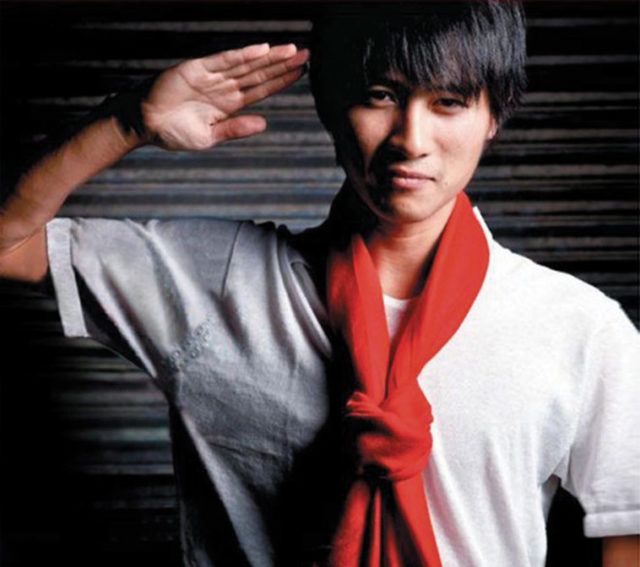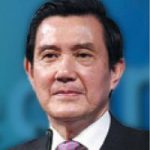Taiwan and mainland China are currently experiencing a period of official conciliation. Economic relations continue to deepen: the 2013 Cross-Straits Agreement on Trade in Services (Liang’an fuwu maoyi xieyi 兩岸服務貿易協議), although controversial in Taiwan, is opening up new areas of exchange that include finance, telecommunications and entertainment. Ever-greater numbers of mainland tourists visit Taiwan, and senior officials from Taiwan’s ruling Nationalist Party are going to Beijing. The result is a change in the tone of the debate on each side about the relationship.
The histories of Taiwan and mainland China diverged at the end of the nineteenth century, when Taiwan became a colony of Japan. In 1945, it joined the Republic of China, and in 1949 the Nationalist government of the Republic, fleeing from the Communists, relocated to Taipei. The end of the Qing dynasty, the chaos of the Republican era and then the founding of the People’s Republic of China in 1949, meant the Mainland followed a different path of modernisation, both economically and politically.
Taiwan, having missed the excesses and disasters of Maoism, has offered a model for modernisation as an ‘Asian Tiger’, reaching an apotheosis with democratisation in the late 1980s. But as China has undergone its own period of hyper-growth, becoming the world’s second largest economy, Taiwan has been reframed as an eastern island hinterland of a new superpower.
Often, over the last century and more, writers and commentators on each side have seen in the other an alternative set of historical possibilities. Tackling themes of progress, tradition, modernisation and civilisation, they have addressed social and political problems in their own experience through the example of the alternative other.
Han Han on Taiwan
In May 2012, the noted mainland Chinese writer, blogger, Internet celebrity and occasional racing car driver Han Han wrote about a visit to Taiwan that addressed the topic of civility in Taiwan society as a way of commenting on contemporary mainland life. His visit had been high profile and he was part of a group that included technology business figures who met with Taiwanese President Ma Ying-jeou in the Presidential Palace.
In his essay titled ‘Winds of the Pacific’ (Taipingyangde feng 太平洋的风) Han Han (notably avoiding the official title ‘President’) says that it was not his meeting with ‘Mr’ Ma that left the strongest impression. He begins sentimentally with a description of his flight touching down in Taipei, when he hears a ringtone of Sylvia Chang singing ‘Playing in the Snow’ (Xixue 戲雪) — a song that evokes the exodus of Chinese Nationalist refugees who fled Communism by relocating to Taiwan in 1948–1949. His speaks about the Taiwan of his imagination — a place that is populated by well-known filmmakers like Hou Hsiao-hsien and the late Edward Yang, and the Republican-era intellectuals who followed the Nationalists to the island such as Liang Shih-chiu, Lin Yu-tang and Hu Shih.
He goes on to record his amazement at how generous and thoughtful Taiwanese shop owners are compared to those on the Mainland. A key incident occurs when he forgets his mobile phone in a taxi. He is stunned when, after friends have called around trying to locate it, he learns that the driver has already dropped the phone back at his hotel. Han Han gets in touch with the taxi driver to offer a reward: ‘He said something unexpected at the end: “I have QQ and Sina Weibo accounts, what’s your account name? We can keep in contact online.” At that moment, I felt the two sides of the Straits couldn’t be closer. Then he said, “Actually, I am also on Facebook, I can add you as a friend!” I told him that we don’t have access to Facebook on the Mainland. “Oh,” he replied, ‘that’s right”. ’
Han Han then launches into a vitriolic condemnation of the state of China today:
I do not want to discuss politics or the system here. As a writer from the Mainland, I’m completely lost. This sense of loss has not come from a few easy days of travel but from all of my life experiences up to now. My sense of loss derives from the environment in which I exist, of seeds buried deep within us, first of decades that taught people to be savage and to fight, and then decades that made people greedy and selfish. My sense of loss is for the civilisation destroyed by the previous generation. Traditional virtues have been destroyed, the bonds of trust between people have been destroyed, but no new society has been built in its place. …
Yes, I want to thank Hong Kong and Taiwan. They have sheltered China’s civilisation, preserving the beauty of the nation and saving its roots from calamity. They do have things that can be criticised. We have a Ritz-Carlton and a Peninsula Hotel, and Gucci and LV, and the wife of a county head in China is richer than their highest officials. For one of our major film productions they could make twenty or thirty of theirs and they could never afford our Expo or Olympic Games. But when walking on the streets of Taiwan, talking to those taxi drivers, food stallholders and people on the street, I feel no sense of pride at all.
Through Taiwan as a counter-example, Han Han captures key anxieties of mainland Chinese intellectuals of a cultural and social life upturned first by Maoism and then by marketisation. Taiwan offers a point of reference from which Han Han can excoriate the failures of a whole generation in China and the breakdown of social relations under China’s Communist experiment. But at the same time, Han Han recognises the wealth and power that China has achieved in his lifetime, and speaks from a position within it. Taiwan is a backwater when measured against the scale of consumerism and global mega-events possible in today’s China.
Han Han’s piece attracted widespread Internet and media comment, including an acknowledgement in a speech by President Ma himself. Not long after Han Han visited Taiwan, the essayist and cultural critic Lung Ying-tai became Taiwan’s first Minister for Culture, heading up a new ministry created out of the old Council for Cultural Affairs and the Government Information Office. On a visit to Zhongshan University in Guangzhou to give a public lecture, Lung was asked about Han Han’s essay. In her response, she celebrated Han Han has having the kind of voice a healthy society needs. She also said that Taiwan demonstrated that Chinese culture at its heart is one of compassion. Lung said that for people like Han Han, the last sixty years on the Mainland has been an experience of political struggle that has left a spiritual wound, and that the past two decades of economic hyper-development has left Mainlanders hard-pressed to find a sense of personal worth. She said that Han Han was expressing a longing that the compassion within Chinese culture could once again be a source for his spiritual life.
In her comments in Guangzhou, Lung also compared Han Han’s essay with her own public critiques of Chinese culture written over many decades in the context of authoritarianism in Taiwan and later of that in mainland China. She said writing her celebrated 1985 volume of essays, Wild Fire (Yehuoji 野火集) had caused a furious controversy in Taiwan because it exposed many social taboos of the period. ‘The skin of society was fragile, and just one smack inflamed it and made it bleed’.
In Wild Fire, Lung Ying-tai had excoriated the Chinese (by which she meant the people of Taiwan) for their apparent apathy in the face of political oppression, corruption and environmental degradation after nearly forty years of martial law. She appealed to a similar sense of civility as Han Han but also to the civic action required to maintain it: ‘You and I are the same ordinary people, with the same needs: a peaceful environment, clean neighbourhoods, orderly streets, civilised and considerate communities’. At the time, expressing such views was risky and controversial in Taiwan and the essays were read with excitement by a receptive public. They also predate the legitimisation of Taiwanese identity politics, in which speaking about the Taiwanese as Chinese has become controversial in its own right.
Later, in 2006, with economic and social links between Taiwan and mainland China growing rapidly, Lung Ying-tai wrote an ‘Open Letter to Hu Jintao’ in response to the closing down of Freezing Point (Bingdian 冰点) magazine — originally published by the China Youth Daily (Zhongguo qingnianbao 中国青年报) and a sharp voice of social commentary in the early twenty-first century. Lung accused the Chinese government under Hu for being unable to abide voices that addressed Chinese history critically: ‘Simply stated, Mr Hu, whether you allow the media to be independent, what attitude you adopt towards your own history, how you deal with the people … every little decision is bound up with the word “civilisation”. We have been through barbarity already, so we have to care about civilisation.’
Both Han Han and Lung Ying-tai speak about the issue of civility being at the heart of the crisis of Chinese society. Both explore the meaning of the term civility as a way of speaking about personal dignity, social relations and the everyday, and, in a broader sense, as an assessment of the state of the polity and its capacity for self-reflection.
Not everyone was so impressed with Han Han, however. Young bloggers in Taiwan picked up a patronising subtext in his equation of civility and weakness: by contrasting the civility of the everyday in Taiwan to China’s contemporary wealth and power, he had made Taiwan out to be a quaint and rustic backwater.
A typical response came from the Taiwanese blogger Lin Shu Shu. Lin wrote a post entitled ‘A cultivated citizen or traditional Chinese virtues: Han Han misunderstands Taiwan’ in which he credited colonisation by Japan for shaping modern Taiwan, both directly through its modernising institutions and indirectly from the organised opposition to it from the Taiwanese. Lin identifies political activists like Jiang Wei-shui — founder of the Taiwan Cultural Association (Taiwan wenhua xiehui 臺灣文化協會) in 1921 and the short-lived Taiwan People’s Party (Taiwan Minzhongdang 臺灣民眾黨) in 1927 — as introducing notions such as the rule of law and democratic political representation that led to democratisation in the 1980s.
Lin asserts that virtue is not unique to Chinese culture or civilisation. Chinese culture and civility flourish on Taiwan because of the rule of law. Lin argues that: ‘only after China completely eliminates despotism will its full splendour be realised’. In other words, Taiwan is more civilised because it is modern, not because it has maintained traditional Chinese culture — that alone does not guarantee either virtue or civility.







